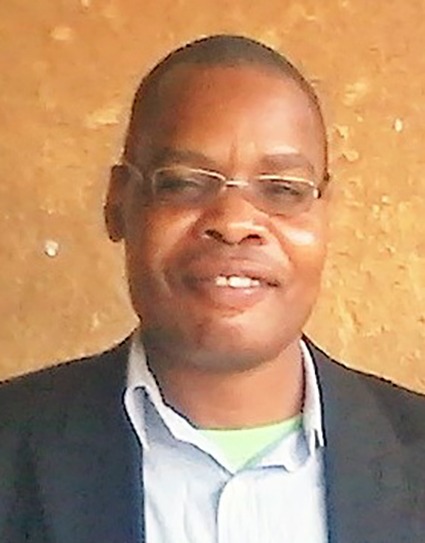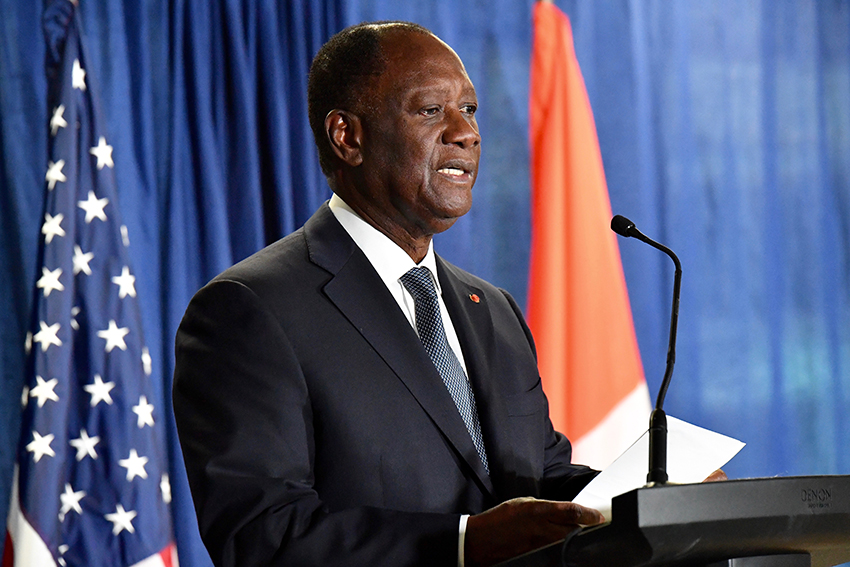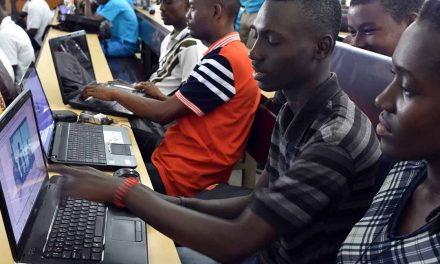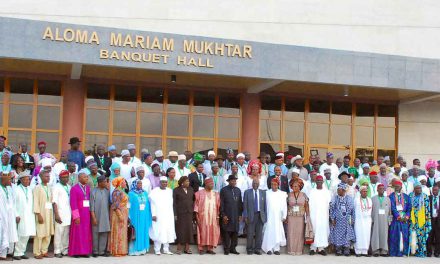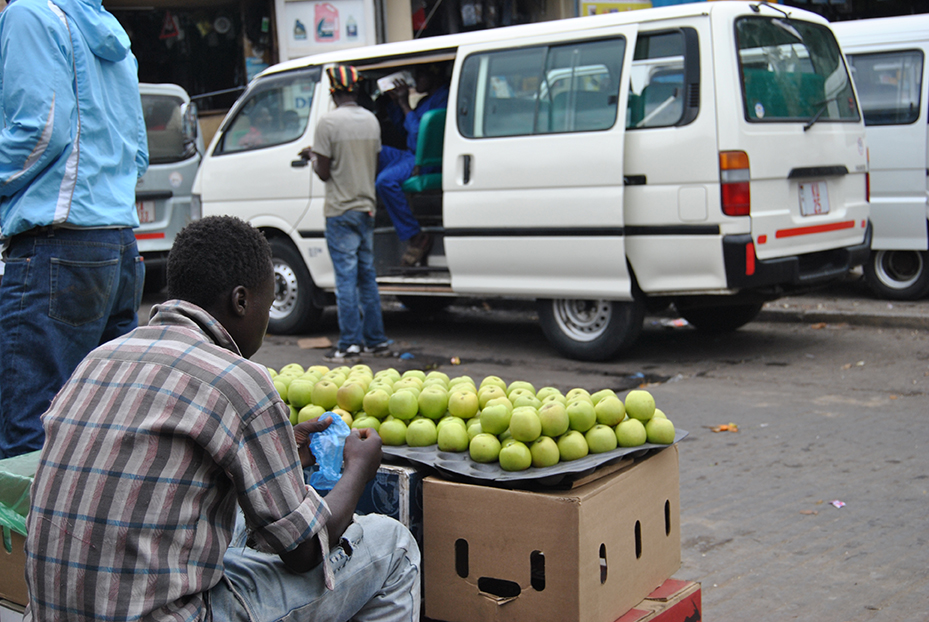
A vendor selling apples at a Minibus market in the city of Blantyre. Image: Disy Kamanga
The government plans to tax the informal economy to make up for funds lost through corruption
For more than two decades, Lifa Andrew Phiri has known no other job than selling second-hand clothes imported from Europe and the USA at the overcrowded main market in the northern city of Mzuzu, Malawi.
But plans coming from Capital Hill, Malawi’s seat of government in the capital city, Lilongwe, may oblige him to pay taxes, causing him his share of sleepless nights, as well as some resentment towards the government. He says the plan to tax informal traders “does not make sense”.
“When we buy our goods from wholesalers, we pay surtax,” he says. “Furthermore, we pay daily market fees of MWK15,000 ($20) to the local council that runs the market. One way or the other, the monies we pay end up in government coffers. Why should we pay more?”
Four years after Malawi’s donors closed the aid tap following the so-called Cashgate scandal, the country has been struggling to balance its books and effectively deliver services to its citizens. Up to 40% of Malawi’s development budget is donor dependent. The absence of this component has raised the country’s domestic borrowing and put a huge strain on the economy.
The Cashgate scandal involved the disappearance of more than MWK35 billion ($48 million) during former President Joyce Banda’s two-year rule and another MWK156 billion ($214 million) that went missing during the eight-year reign of former president Bingu wa Mutharika. The thievery saw Malawi’s public servants colluding with various contractors to siphon millions of dollars from government coffers.
As a result of the scandal, Malawi’s major donors suspended up to 40% of the country’s budgetary support in 2014. This forced the government to borrow heavily, locally, as a short-term measure to address the deficit. The Peter Mutharika administration inherited local debt-payment arrears amounting to MWK154 billion ($212 million) when it assumed office in May 2014. For the past 10 years Malawi’s debt has more than doubled and stands at 54.3% of GDP; in 2007 it was 26.7%
Now the government is contemplating extending the obligation to pay tax to include the informal sector, as one way of mitigating the effects of the donor- funding freeze. It also claims the move is intended as a blueprint for future budgetary sustainability. The Malawi Revenue Authority (MRA) has over the years struggled to meet collection targets set by government because of what it described as a “sluggish economy”.
This year, the MRA has missed several monthly collection targets from two tax streams – corporate tax and pay as you earn (PAYE). In April 2017, for example, it collected MWK17 billion ($24 million) from corporate taxes, against a target for the month of MWK21 billion ($30 million).
Minister of Finance Goodall Gondwe said in May 2017 that the situation threatened to “paralyse” government operations, and that the government had decided to ask its creditors to accept payment in the form of promissory notes. The high interest payments for domestic debt were likely to continue for the next three years as maturing zero coupon promissory notes were converted into interest-bearing securities.
(The government persuaded creditors to accept payment in the form of promissory notes of one to three-year maturity, which would be neutral on interest payments. It planned that, on maturity, the promissory notes would be converted into interest-bearing securities, such as treasury bills.)
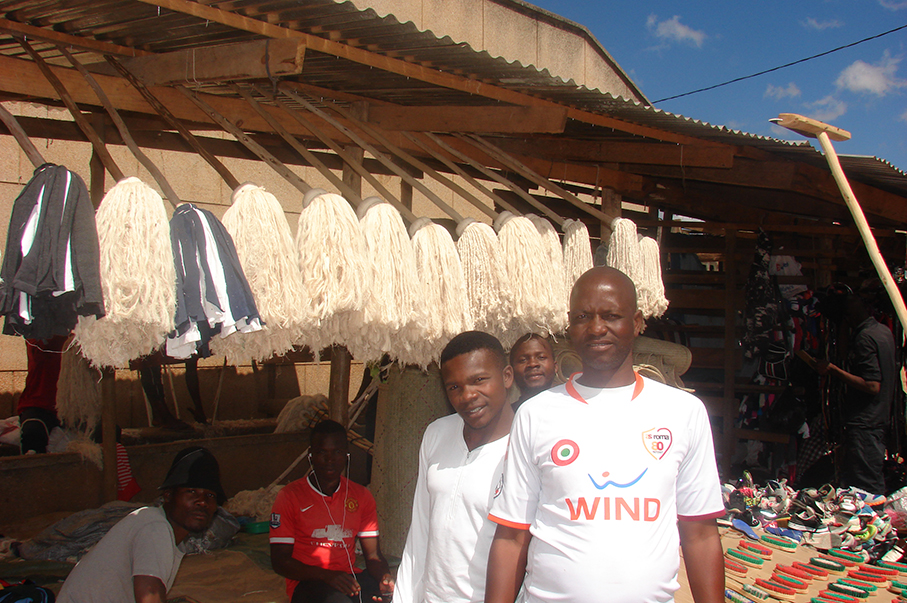
Lifa Andrew Phiri, an informal trader, says the proposed taxes don’t make sense. Image: Disy Kamanga
Malawi’s fiscus has been generally characterised by low levels of tax collection and in particular, a failure to tax income and wealth, according to a March 2017 Centre for Social Concern (CfSC) report.
“In the discussions about taxation the issue that is referred to most frequently is the revenue envelope required by government to run schools, hospitals and to assist farmers grow sufficient food,” said CfSC director Father Jos Kuppens. Malawi’s tax system was “retrogressive” because it did not divide the taxation burden equitably, he continued.
“At the moment, a great share of revenue is generated by people who already are very lowly paid or get less income. We have also the problem that the people discussing these issues are in the category of people who earn more than MWK2.1 million ($3,000) a month. If a more equitable system were to be adopted, they would receive less at the end of the month than they do now,” he noted.
Malawi’s informal economy covers a multiplicity of activities and different types of work. Included in this sector are the self-employed, casual workers without fixed employment, street vendors, hawkers and people in the agricultural sector.
“It is quite evident that recently, attention has been focused on the informal economy because evidence on the ground suggests that this sector is here to stay. The informal sector is growing rapidly, at the expense of the formal economy,” noted Wezi Galera Shaba, Senior Assistant Registrar (academics) at Mzuzu University.
The government’s plan to tap taxes from the informal economy will face challenges, as people see no value in paying taxes.
A 2014 FinScope survey revealed that the micro, small and medium- enterprise sector, in which some 91% of businesses operate informally with no registration, generates at least MWK73 trillion ($1 billion) in annual turnover, and employs more people than the formal sector. The Malawi government’s revenue currently consists of taxes, grants, royalties, fees, penalties and dividends from statutory corporations.
The plan to tap taxes from the informal economy will likely face challenges, because people in this sector will not see value in paying taxes to a government that does not care for them, said Shaba.
“The informal sector is not currently legally covered by any type of social protection. All legal and regulatory frameworks put much emphasis on covering those in the formal sector, as most ‘protected’ schemes are employment-related,” Shaba noted.
Gondwe said that Malawi, with the help of International Monetary Fund (IMF) experts, was also reviewing its tax regime and administration with the aim of boosting economic growth. The IMF has said that Malawi needs to put measures in place to broaden the country’s tax base and strengthen public financial management and procurement.
Malawi’s economy attained a real GDP growth rate of 2.7% in 2016 but is projected to grow between 5 and 6% in 2017. The growth outlook is premised on favourable weather conditions, macro-economic stability, consistency in policy implementation and renewed private sector confidence.
However, a June 2017 research paper published by the Tony Blair Institute for Global Change suggests that Malawi’s aim to incorporate informal businesses into its tax base may amount to wishful thinking. It notes that Malawi, Ghana, Kenya, Liberia, Nigeria and Sierra Leone have struggled to transform and generate growth that is inclusive for all their citizens despite having great economic potential.
“Unemployment will ravage the continent if it doesn’t opt for market- based development,” the report said. Instead, the report suggested, governments, supported by their development partners, should focus on developing sectors that have strong economic potential for competitiveness and create jobs.
Economic Association of Malawi (Ecama) president Henry Kachaje argues that the proposal to tax the informal sector may be premature. He agreed that incorporating the informal sector would increase the country’s tax base significantly. “But for that to happen, we must first deal with the macro- economic fundamentals to boost productivity in the economy,” he told Africa in Fact. The country’s current commercial interest rate of 27% and its inflation rate of 12% were the highest in the SADC region, he said.
Former Reserve Bank of Malawi Governor Elias Ngalande is also sceptical of the move. “A good part of our economy still operates outside the formal financial system, and some estimates put the size at up to 60% of GDP. Therefore, any monetary policy is irrelevant to this sector,” he told Africa in Fact.
An independent tax expert, Emmanuel Kaluluma, said that incorporating the informal sector would free Malawi from any dependence on donors, either as regards budget support or other infrastructure projects.
The country’s informal economy was “huge” in terms of its contribution to its GDP, he said. “The biggest problem in Malawi is unemployment, hence many people are in the informal economy to eke out a living. This is the backbone of the economy.”
Kaluluma said the Malawi government’s plan to rope the informal sector into the tax system was “feasible”, but he added that it would require the government to embark on a massive taxpayer education programme.
Meanwhile, Phiri, a father of five, makes a profit of MWK10,000 ($140) a month from his clothing stall. He is worried that government’s move will further push him, and others, into poverty by eating into his meagre profits.
“This is retrogressive. What it means is that we will be doing business to pay the government, [while] we will remain impoverished,” he told Africa In Fact.
Kaluluma said the Malawi government’s own poor example with regard to fiscal discipline would not inspire people to be tax compliant. “Principal secretaries are given 1,000 litres of fuel a month, while cabinet ministers who have three or more official cars each get much more. This is unrealistic in a poor country struggling to balance its books,” he said.
Political analyst Dan Msowoya agreed that taxing the informal sector could make a significant difference to the fiscus, but he argued that the situation the plan proposed to address had been caused by the government’s own failure, both with regard to fiscal discipline and corruption. The informal sector might respond accordingly to the patriotic call to pay taxes. Any changes to the taxation system would have to be fair and just if they were to gain acceptance.
The government would need to take cognisance of the existing systemic injustices, he emphasised.


